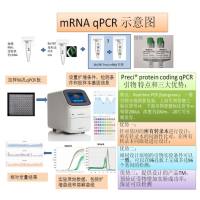Implementing a QTL Detection Study (GWAS) Using Genomic Prediction Methodology
互联网
520
Genomic prediction exploits historical genotypic and phenotypic data to predict performance on selection candidates based only on their genotypes. It achieves this by a process known as training that derives the values of all the chromosome fragments that can be characterized by regressing the historical phenotypes on some or all of the genotyped loci. A genome-wide association study (GWAS) involves a genome-wide search for chromosome fragments with significant association with phenotype. One Bayesian approach to GWAS makes inferences using samples from the posterior distribution of genotypic effects obtained in the training phase of genomic prediction. Here we describe how to do this from commonly used Bayesian methods for genomic prediction, and we comment on how to interpret the results.









